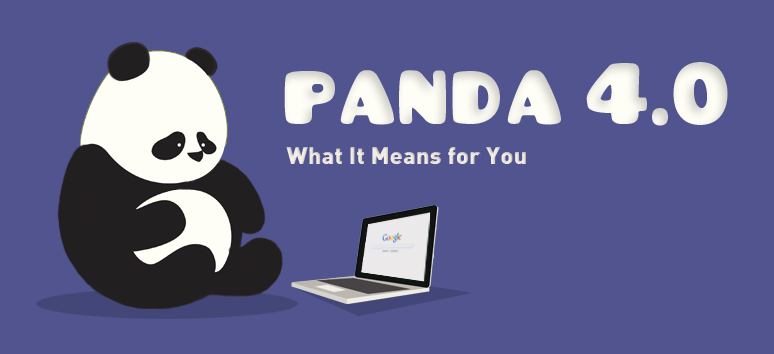
On May 20, 2014, Matt Cutts announced on Twitter that Google released its latest algorithm update, named Panda 4.0. Cutts, who leads Google’s Webspam team, is responsible in one way or another for all of Google’s frequent updates and is widely considered one of the foremost authorities on Google’s famed search engine algorithm.
Neither Cutts nor Google has said much about Panda 4.0 since then and the search giant hasn’t even written about it on its own blog. But since Google regularly refreshes or makes subtle, unannounced changes to its algorithm, the fact that it announced Panda 4.0 implies this a major update.
So what is Panda 4.0 and what does it mean for your dealership’s ecommerce site? This article will explain the consequences of the latest algorithm update, and how your dealership can avoid inadvertently incurring Google’s wrath.

Panda History
The original Panda update, created in 2011, was intended to penalize websites that had thin or poor quality content, which had become a huge problem: Spammers used them to create barely readable articles just to increase their rankings within the search engines. Panda successfully pushed those offending websites down in the search rankings and was very influential on English language organic search results, but not without some hiccups: Due to Panda’s initial scale, there were problems in which content that had been copied or scraped from other websites was able to rank above the original source. It damaged the rankings of some legitimate websites, even those that faithfully followed Google’s guidelines.
Nowadays, the algorithm is updated continually with smaller changes, so the impact is less severe. Still, the updates are closely watched by online businesses, because they can mean the difference between being found by new customers and being filtered out: If you have some duplicate content or a few pages that are lower quality, you could see a decrease in traffic following an update. It’s critical to fix those issues quickly, before your entire site suffers.
Which Sites Were Affected?
The sites that appear to have been really hurt by Panda 4.0 are primarily content aggregators, such as PRWeb and PRLog. This fits in with the overall aim of Google to elevate the ranking of sites that provide useful and unique content.
Other sites that reportedly lost rankings are automated and template based websites. This is where ecommerce should be particularly concerned because many online stores selling common products tend to use product descriptions from the manufacturer or supplier, which creates a huge amount of duplication.
Was I Affected?
Was your dealership’s ecommerce site hit by Panda 4.0? The only way to know for sure is to review your search-driven traffic from Google. If you’ve seen a significant increase, you’ve probably been rewarded by it. Big decreases in traffic? You were probably hit.
What Should I Do?
Because you never know when a Panda-like update will occur, your marketing strategy should include a periodic review of your site, its ranking and its content. Consider the following (especially if you have been hit by Panda 4.0 or any update):
- Remove all duplicate content or anything that can be found identically elsewhere.
- Remove low quality content like pages that receive little engagement from visitors.
- Add “noindex, nofollow” tags to any duplicate content that you have to keep; this prevents Google from indexing and crawling that content and penalizing you.
- Keep your content original. Write your own product descriptions and do not use the manufacturer’s specifications. Avoid duplicate content as much as possible.
It’s important that your ecommerce site include original content. It’s fine to cite other people and reproduce portions of their content to illustrate or take issue with a point being made. Just be sure you give proper attribution and use “nofollow” links. Let the social networks and web/mobile apps do their thing in terms of content aggregation or syndication. You can read more about the popular websites that either suffered or benefited from Panda 4.0 on Search Engine Journal.
Our Perspective
Google’s Panda 4.0 update isn’t a cause for concern for dealerships and ecommerce sites that are disciplined in their marketing strategy. Market Torque ecommerce solutions can be tailored to combats the effects of these updates for your dealerships that want to sell OEM parts and accessories online. Our ecommerce solutions are Panda 4.0 compliant and we encourage our customers to stay Google compliant. Call us to learn more.


